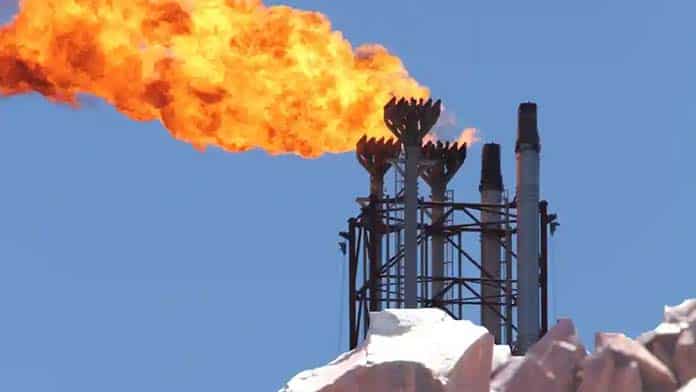Oil and gas companies are demanding government handouts and the ability to buy their way out of cutting emissions by using dodgy offsets under a new Labor government climate scheme.
Labor has begun work on redesigning the “Safeguards mechanism” to cut emissions from industry, beginning a “consultation period” to ask business for its ideas on the design.
The Safeguards mechanism would give each company its own reduction target. Companies are awarded credits if they reduce emissions by more than their target. They can sell the credits on.
Instead of actually reducing emissions, other companies will be able to buy their way out by purchasing these carbon credits, both from other companies and from offset schemes like tree planting.
An analysis shows that coal and gas companies could buy the offsets they need with loose change. The cost to Woodside would be between 0.05 per cent and 0.09 per cent of its profit this year, while coal miner AngloAmerican would be up for less than 0.025 per cent of its profits.
Labor is pledging to grant businesses all kinds of exemptions and special deals. Climate Change Minister Chris Bowen has promised to be “very sensitive to the needs of emissions-intensive, trade-exposed industry”.
He has ruled out the use of international offsets for now, saying it would be “several years” before quality concerns were addressed.
But even the domestic offsets system is “largely a sham”, according to Professor Andrew Macintosh, the former head of the government body set up to monitor it. His study found that tree coverage had barely increased, despite the award of millions of credits for tree planting.
Offsets are always open to manipulation—and tree planting projects will never store carbon for thousands of years like coal and gas deposits.
The scheme will apply to all manufacturing, mining, transport and waste processing facilities that release more than 100,000 tonnes of greenhouse gases a year. Together these make up 28 per cent of Australia’s total emissions.
Gas and coal mines account for around half of this, due to gases released during extraction.
Opening new coal and gas projects would mean that emissions covered by the scheme would rise, making the task of reducing total emissions and hitting the government’s own inadequate 43 per cent reduction target by 2030 difficult.
Yet Bowen has already said that his new scheme is “not designed as a mechanism to stop any new oil and gas”.
The scheme was introduced by the Liberals in 2016. But with no penalties for companies that missed their reduction targets, emissions it covers have increased by 7 per cent. Labor says it wants to see emissions fall by between 3 and 6 per cent a year in order to meet its targets.
The Greens, along with some of the teal independents, are calling for changes. But the government will introduce the new rules through regulation, which means it does not need The Greens’ support. The regulations can only be overturned if The Greens gain the support of the Liberals in the Senate.
But a scheme that relies on offsets will not deliver genuine cuts to emissions. We need direct regulation to force companies to cut their emissions, backed up by public investment in new zero carbon technologies.
By James Supple






